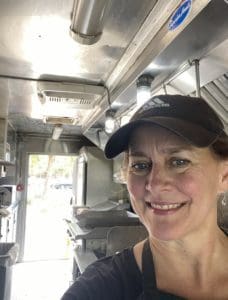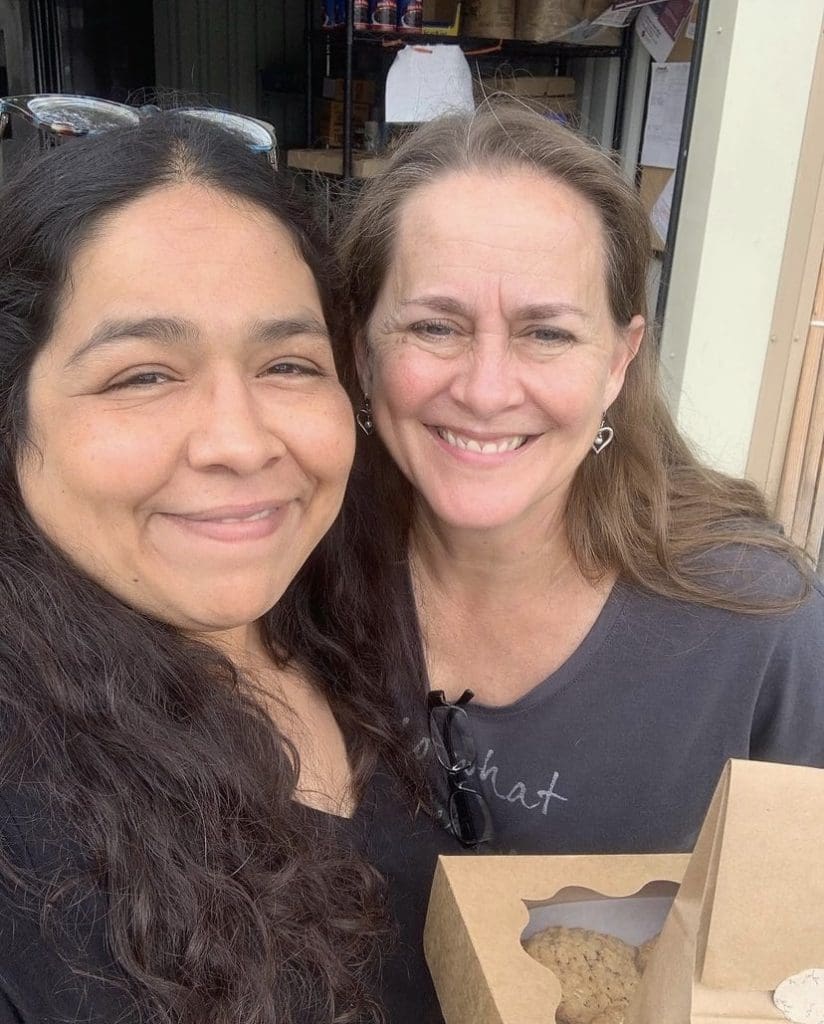Our Mission
Garden of Eatin’ believes everyone deserves access to healthy, nutritious food. We strive to eliminate hunger in our community while also reducing excess from the hospitality industry.
Our Vision
Transforming local food systems to ensure food security for all.
Our Board
- Christina (Urrutia) Graf – Board
- Lotus Rios – Board
- Frank Cristan – Board
- Yvonne Perez – Accountant
- Beverly Bernal – Secretary
Our Director

Christina Urrutia has been in the restaurant business for 40+ years. As Christina explored her life goals, she discovered a synergy between her desire to reduce the tremendous waste in the food service industry and her passion for helping those in need.
She is following the call those goals placed upon her heart by collecting leftover perishables from caterers, restaurants, and grocers to create nourishing meals to serve hungry people with love.
Garden of Eatin’ Community Truck is made with love. As a 501(c)(3) non-profit organization, we appreciate your support.


